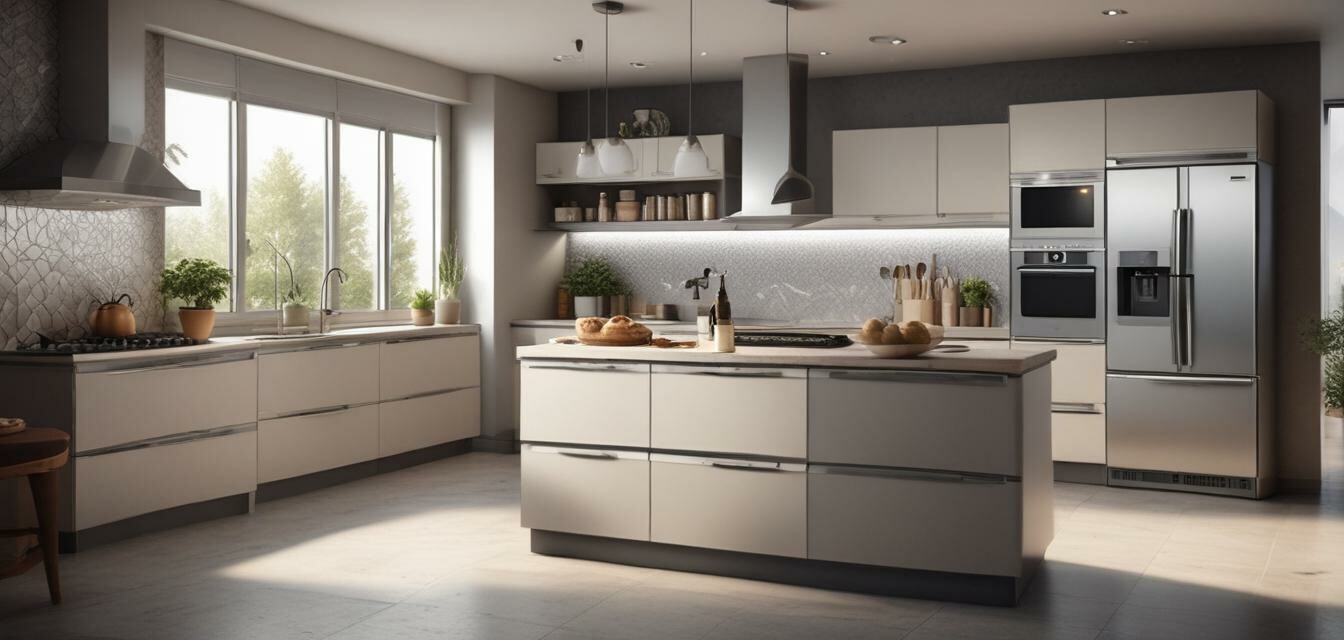
Top Energy Efficient Ovens for Home Cooks
Key Takeaways
- Energy-efficient ovens save on electricity bills while providing excellent cooking performance.
- Look for features like convection settings, self-cleaning options, and smart technology.
- Consider size, capacity, and design to fit your kitchen and cooking style.
- Regular maintenance can enhance the longevity and efficiency of your oven.
- Ovens with high energy ratings often provide better cooking performance.
When it comes to cooking, having a reliable and efficient oven can make all the difference. In 2025, several energy-efficient ovens stand out for their performance, energy usage, and unique features tailored for passionate cooks. This guide will explore the top options available, helping you make an informed decision for your kitchen.
Why choose energy-efficient ovens?
Energy-efficient ovens not only contribute to reducing your energy bills but also support sustainable cooking practices. These ovens utilize advanced technology to ensure that heat is effectively distributed, minimizing energy consumption while maximizing cooking results.
Top energy-efficient ovens overview
| Oven Model | Energy Rating | Special Features | Average Price |
|---|---|---|---|
| Model A | A++ | Convection baking, self-cleaning | $1,200 |
| Model B | A+ | Smart technology, rapid preheat | $950 |
| Model C | A++ | Steam cooking, delay timer | $1,450 |
| Model D | A+ | Infrared heating, fine temperature control | $1,100 |
What to consider when choosing an energy-efficient oven
Choosing the right energy-efficient oven involves understanding various factors to ensure it fits your cooking needs. Here are some critical features to consider:
- Energy Consumption: Look for ovens that have higher energy ratings, which usually indicate better efficiency.
- Size & Capacity: Ensure the oven can fit in your kitchen space and meet your cooking needs.
- Cooking Features: Evaluate special features that enhance cooking, like convection settings or steam cooking.
- Ease of Use: Consider how user-friendly the controls and features are.
Comparing different types of ovens
Understanding the various types of ovens available can help you decide which one meets your requirements best. Below is a comparison of conventional ovens, convection ovens, and steam ovens:
| Type | Advantages | Disadvantages |
|---|---|---|
| Conventional Oven | Simple design, reliable cooking results. | Slower heating times, less energy efficient. |
| Convection Oven | Even heating, shorter cooking times, energy-efficient. | Generally more expensive, may require adjustments in recipes. |
| Steam Oven | Healthier cooking with moisture retention. | Higher initial cost, may have a learning curve. |
FAQs about energy-efficient ovens
How do I maintain my energy-efficient oven?
Regularly clean your oven to prevent buildup and damage. Follow the manufacturer's instructions for any specific maintenance tasks.
Do energy-efficient ovens cook differently?
Yes, they may cook food more evenly and quickly due to advanced technology, which can enhance your overall cooking experience.
How much can I save by using an energy-efficient oven?
Your savings will depend on your usage, but energy-efficient ovens can significantly reduce your electricity bills over time.
Tips for beginners
- Read the manual to understand all functions and settings of your oven.
- Start by experimenting with basic recipes to get accustomed to the temperature and cooking times.
- Keep the oven door closed while baking to maintain consistent temperature.
- Use an oven thermometer to ensure accuracy in temperature settings.
Pros
- Lower energy consumption translates to savings on your electricity bill.
- Advanced features improve cooking efficiency and performance.
- Contributes to a sustainable environment by reducing your carbon footprint.
Cons
- Higher initial purchase price compared to standard ovens.
- Some models may require adjustments to cooking times.
Final thoughts
Choosing the right energy-efficient oven can greatly enhance your cooking experience while saving you money on energy bills. As you explore the options available in 2025, prioritize features that align with your cooking style. For more information on energy-efficient appliances, check out our [dishwashers guide](/products/dishwashers) or explore our [purchasing tips](/blog/tips-and-how-to-articles).
